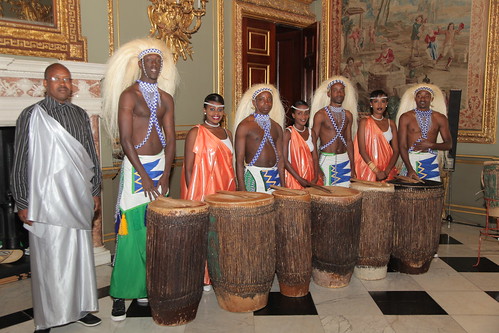And now, to take the time to look firmly forward for a moment!
We at the African Well Fund are pleased to announced our newest project which seeks to provide over 1,800 students and community members with clean water, sanitation facilities, and hand washing stations in Mali.
This new initiative will take place in Doumba, one of nine communes in the Koulikoro region. Traditionally villagers in Doumba have used community-dug wells which serve both humans and animals, but these boreholes often run dry in the drought-prone, rocky region. While there are seven villages with public schools, none of these public schools has its own water access or toilets. Boys and girls must go to the houses of neighboring families in search of water while at school, causing disruptions in classes and negatively impacting the number of girls attending.
Some communities do take steps to ensure proper hygiene and sanitation, however many lack the resources to do so fully, leading to villagers drinking unsafe and contaminated water from traditional wells, or when the wells in villages dry up in the hot season, from the river. Waterborne diseases are most frequent among those who must depend on this untreated water, with children particularly affected.
To improve access to drinking water and sanitation, the African Well Fund with partners Africare will install one borehole, rehabilitate two toilets, and build two hand washing facilities in the village school of Dibaru.
The borehole will serve not only the school children, but also surrounding community members. Community ownership will be encouraged, with a water management committee comprised of local villagers helping to organize community assistance with construction, sanitation, and maintenance.
We hope to see work on this new project completed by October 2012 and we need your help!
All together the project is expected to cost $50,000.00. That's only a little over $25.00 for each villager who will have access to safe, clean water. Can you contribute today?
Please go here to donate to our work in Mali.
We at the African Well Fund are pleased to announced our newest project which seeks to provide over 1,800 students and community members with clean water, sanitation facilities, and hand washing stations in Mali.
This new initiative will take place in Doumba, one of nine communes in the Koulikoro region. Traditionally villagers in Doumba have used community-dug wells which serve both humans and animals, but these boreholes often run dry in the drought-prone, rocky region. While there are seven villages with public schools, none of these public schools has its own water access or toilets. Boys and girls must go to the houses of neighboring families in search of water while at school, causing disruptions in classes and negatively impacting the number of girls attending.
Some communities do take steps to ensure proper hygiene and sanitation, however many lack the resources to do so fully, leading to villagers drinking unsafe and contaminated water from traditional wells, or when the wells in villages dry up in the hot season, from the river. Waterborne diseases are most frequent among those who must depend on this untreated water, with children particularly affected.
To improve access to drinking water and sanitation, the African Well Fund with partners Africare will install one borehole, rehabilitate two toilets, and build two hand washing facilities in the village school of Dibaru.
The borehole will serve not only the school children, but also surrounding community members. Community ownership will be encouraged, with a water management committee comprised of local villagers helping to organize community assistance with construction, sanitation, and maintenance.
We hope to see work on this new project completed by October 2012 and we need your help!
All together the project is expected to cost $50,000.00. That's only a little over $25.00 for each villager who will have access to safe, clean water. Can you contribute today?
Please go here to donate to our work in Mali.






 These twenty school children will now have their school fees paid.
These twenty school children will now have their school fees paid.












